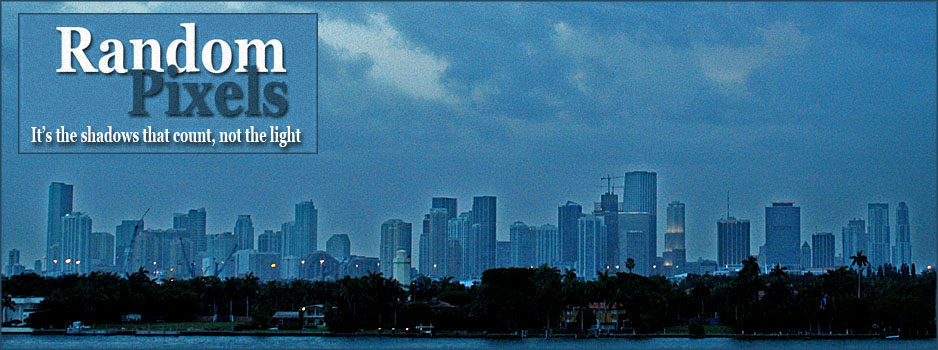UPDATED Saturday @1:15pm: Al Tompkins of the Poynter Institute, (quoted below) after reading my post, dropped me an email early this morning and offers this clarification: "I think I said the job of the journalist is NOT to NEVER invade privacy, but to respect privacy. We do invade privacy when there is a legitimate reason--when the invasion is outweighed by the public good."
Miami experienced an old-fashioned media feeding frenzy this week.
Or as one Miami media watcher declared: "It was like swimming with a bloody, open wound in the midst of a swarm of hungry sharks."
I'm speaking, of course, of the Father Cutié story.
Everybody got a piece of the action.
TV live trucks lined the street in front of Cutié's St. Francis de Sales church on South Beach.
The Herald dispatched reporters and photographers in search of Cutié and his mysterious friend. This morning's stories in the paper carried no fewer than six bylines.
And today we also learned the identity of the woman. A Spanish TV outlet tracked her down and the Herald dutifully printed her street address.
WPLG senior political reporter Michael Putney, who once wrote for the Herald, believes the story is a legitimate topic for discussion. "Here we have a rock star priest carrying on an affair in public."
But Putney has nothing but scorn for TV stations camped outside the woman's Miami Beach apartment. "There's no reason to be staking out her door."
"She never took a vow of celibacy," Putney told me today by phone. "Leave the woman alone for God's sake."
Today I also asked Al Tompkins, who teaches journalism ethics at the Poynter Institute in St. Petersburg, if the Herald erred when it printed woman's address.
"What's the purpose?" asked Tompkins. "It's his [Cutié] story."
"If you're going to publish the address, explain why...the reason. Explain the relevance."
Tompkins said the Herald could have accomplished this by running an editor's note explaining why it felt compelled to print the woman's address.
Tompkins says there are circumstances that would justify printing the address: "If she lived in a convent," or at "10 Downing Street," for instance.
Tompkins explains that the rule in journalism is "never invade privacy; respect privacy."
Tompkins went on to say that some one's right to privacy is sometimes outweighed by the public's need to know. Such as a politician's private business dealings that might come into conflict with his ability to serve.
...
So The Herald jumped feet first into the feeding frenzy, and, in its quest to be first, it blurred a few ethical lines.
Hopefully when all the heavy breathing subsides, someone at the Herald will sit down at a keyboard and explain who made the decisions regarding this story.
And perhaps an apology to Ruhama Canellis might be in order.
Putney summed up the Herald's dilemma best when I asked him if this was the first time the Herald got caught up in a tabloid story.
"No," he said, "but they used to hide it better."
---
Michael Putney will discuss the Father Cutié story this Sunday on "This Week in South Florida" at 11:30am on WPLG, Channel 10.

Just disgusting, another reason why nobody with any brains read's the Herald anymore!
ReplyDelete